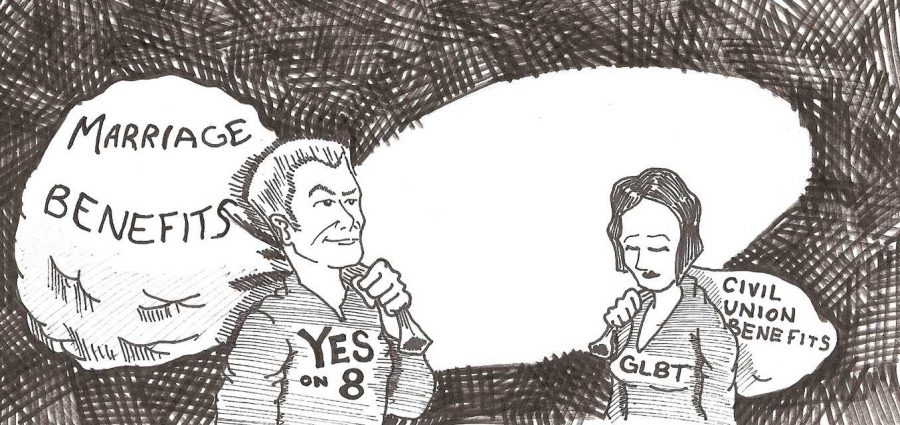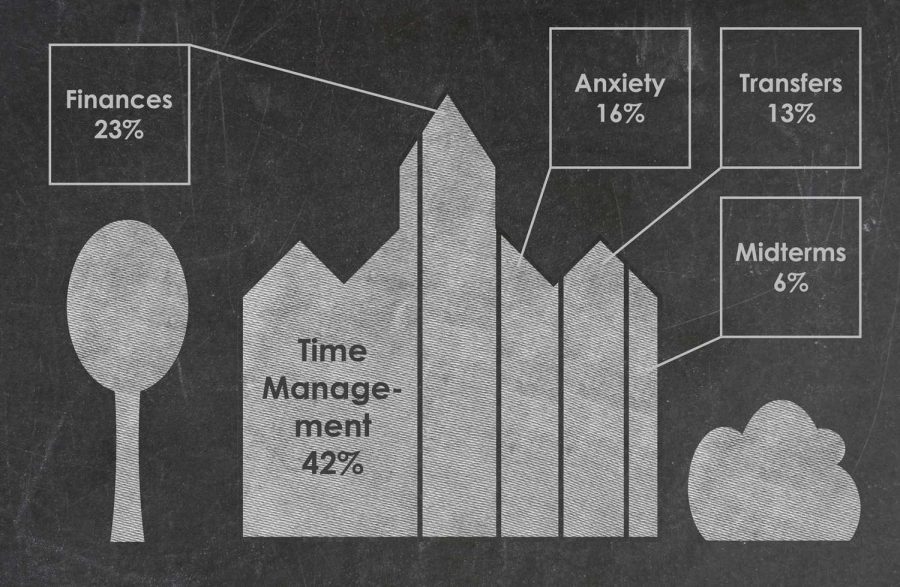Face it, whether you’re gay or straight, religious or atheist, the passage of Proposition 8 goes against both the California and the U.S. Constitutions, creating just cause for concern.
The constitutional amendment to ban same-sex marriage in California is unprecedented. Not since the Jim Crowe laws, dating as late as 1965, has there been legislation anywhere in the United States that actually takes away rights from the people.
Prop 8 eliminated the right for homosexual couples to marry, but still allows for civil unions.
It is argued that civil unions are completely equal under the law, providing the same rights as that of married couples.
Sound familiar?
It should. These two institutionsare about as equal as the public services for whites comparedto blacks in the 1950s.
Welcome back to “separate but equal,” California.On May 15, the state’s Supreme
Court struck down Prop 22, which had formerly blocked same-sex marriages since the year 2000. The majority decision argued that marriage is a basic civil right, and sexual orientation did not provide legitimate grounds to deny any such rights.
The court also stated that the sexual orientation of parents did not interfere with the raising of children, something the Yes on 8 supporters argued.
To sidestep the court’s decision, Proposition 8 was born (and eventually passed), amending the constitution to take away the marriage rights of homosexuals
once and for all.
This begs the question, can a constitution contradict itself?
The California Constitution clearly states in Article 1, Section 1, “All people are by nature free and independent and have inaliable rights. Among these are enjoying and defending life and liberty… and pursuing and obtaining safety, happiness, and privacy.”
Does Prop 8 now simply make an exception of homosexuals? Everyone has equal rights exceptfor them?
The “equal protections” clause of the 14th Amendment in the U.S. Constitution also butts heads with Prop 8’s amendment.
This, for certain, is against the law, for all state constitutions must abide and agree by the supreme U.S. Constitution.
This sets an unnerving precedent that rights from other groups may be taken away
the grounds of contrasting beliefs.
Prop 8’s main proponents were religious groups that wanted to “protect the sanctity
marriage,” groups that claimed they would lose their tax exemption
status when they refused marry same-sex couples.
Churches never had any obligation to perform marriages that went against their core beliefs.
California, along with some other states, has a ballot initiative process that allows voters
place issues on the ballot for the public to vote on.
How much power is reserved by this process? Enough for a band of petitioners to get legislation on the ballot that takes away the rights of other citizens? How much faith can we put in the people and in direct democracy?
By the looks of things, the prospectus is not good.
A shameful, backwards step for California
November 19, 2008
0







